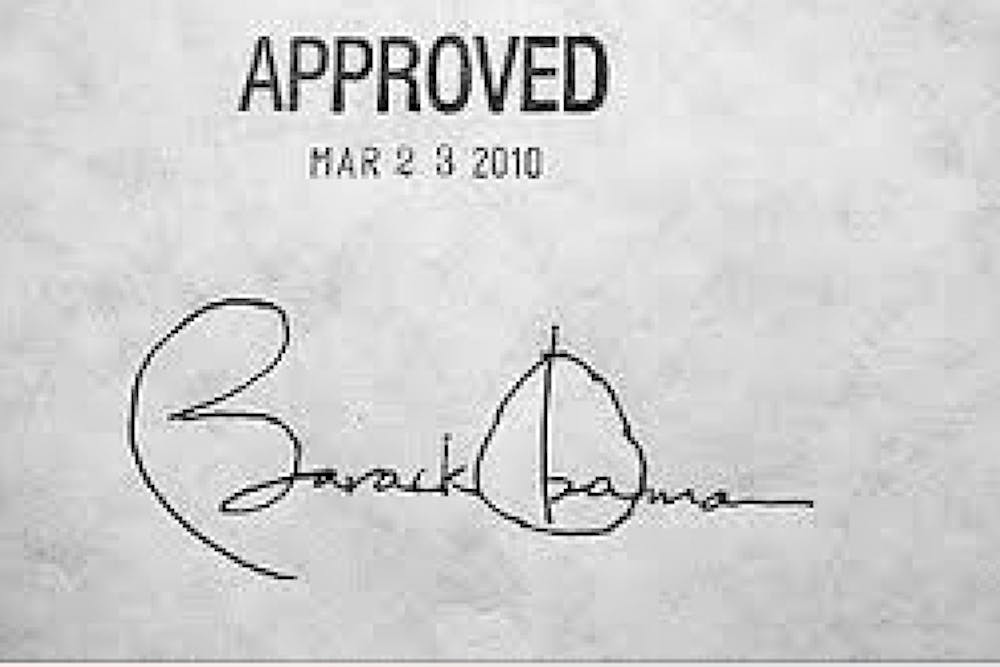Since the day the Affordable Care Act, better known as Obamacare, became law in 2010, the Republican Party has successfully attacked it to the point that the Repeal and Replace movement has appealed to many Americans.
Obamacare did not solve many of the problems it set out to fix. Other than getting more people coverage, which occurred because of Medicaid expansion and government subsidies, the law has been a colossal failure. Premiums rose more than initially predicted, plan choice reduced over the years as companies dropped out of certain markets due to increased costs, and in what PolitiFact deemed the Lie of the Year in 2013, you could not necessarily keep your plan if you liked it, as millions of Americans received cancellation notices.
The GOP opposition to this law was once only a fairytale and a popular talking point, but with a Republican majority in both the House and the Senate and with President Trump in the White House, Republicans recently got smacked in the face with keeping the promise they’ve made for nearly seven years. Voters demanded a quick repeal and replace, and in all the time Republicans had to have a plan ready to take Obamacare’s place, they instead played politics and produced the American Health Care Act last week. This bill is best described by Republican Congressman Thomas Massie who calls it a “stinking pile of garbage.”
Speaker of the House Paul Ryan was quick to defend the legislation that was immediately denounced by the Freedom Caucus and several senators, including Rand Paul and Susan Collins. This initial pushback from select Republicans happened even before the Congressional Budget Office (CBO), a nonpartisan budget and policy analysis agency, released their take on the bill just this past Monday. After their shocking interpretation, the bill that gave some Republicans some hesitation is almost certain to create more staunch opponents.
The CBO has given their best estimates on the bill’s effects, and it doesn’t look too good. Twenty four million Americans are expected to lose coverage by 2026. Fourteen million would lose insurance within the first year. Granted, that comes from personal choice of policy holders with the removal of the individual mandate, which penalized individuals who did not have insurance. It also comes from higher premiums that are expected the first few years the law is enacted.
However, I’m not convinced that Republicans have removed this individual mandate. One aspect of the law is that insurers must apply a 30 percent surcharge on premiums for people who enroll in a plan after having been uninsured for more than 63 days within the past year. So if you hesitate to get insurance or wait to get it until you are sick, you are subject to this “surcharge,” better known as a tax. This is exactly what Obamacare does, but in a more direct way.
I also find it staggering that Republicans have the audacity to throw a party over a $337 billion deficit reduction over 10 years. With an annual deficit that hovers around $500 billion and Republicans’ budget plan to keep all other spending at the same exact level, this is nothing to be celebrating. We need much deeper cuts and reforms to get us to a balanced budget. If the cost of this reduction is more distortion and cronyism in the health insurance marketplace, I say no thank you.
Don’t get me wrong. I want Obamacare repealed as much as anyone else, but what the GOP is offering is more big government solutions to a problem that requires less government solutions. Examining why health insurance is so expensive now, we should be begging the federal government to stay out of the way and let the free market handle it.
When the federal government got into the business of healthcare in the 1960s with the creation of Medicare and Medicaid, demand for insurance skyrocketed while the supply of doctors and other health care providers dropped, which caused the price of providing health care to go up.
Several other laws and regulations have enacted bad policies that cause prices to go up and competition to go down. Several administrations authorized pharmaceutical drug monopolies and restrictions on drug importation, causing extremely high prices for prescriptions. The Nixon Administration instituted harsh regulations on the construction and supply of hospitals. Recent pushes by the government to increase demand artificially have only made things worse.
Why should we trust the government to fix these problems, when they were the ones who created the problems?
Nick Eagle is a graduate student studying applied economics from Apopka, Fla.

















